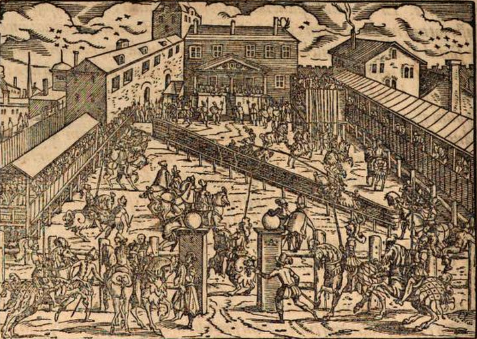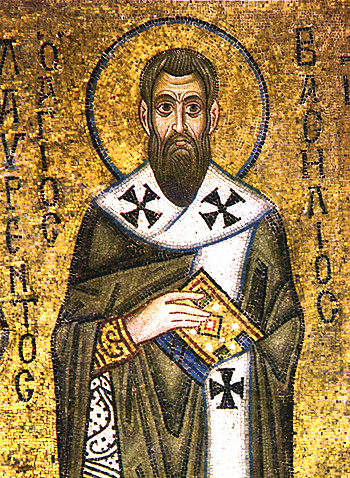|
Contessa Entellina
Contessa Entellina ( sq, Kuntisa) is a small ''comune'' in the Metropolitan City of Palermo, in Sicily, southern Italy. Is located in the "Valle del Belìce" at above sea level in the mountains called ''Brinjat'', is situated 80 km from Palermo. The country, along with Piana degli Albanesi and Santa Cristina Gela, is among the three ethnic communities of Arbëreshë of Sicily, who still speak Albanian, carefully preserve the Orthodox rite, the Albanian costumes, musical and gastronomic traditions of the ancient Albania. History The foundation is attributed to about 1450 on the ruins of a remote farmhouse seniority, the "Comitissa", but the chapter officers, the granting of fiefs, were built in 1520, when he start the rebuilding, upgrading and restocking of Albanians from Albania and subsequently also by the southern Morea, from Albanian communities where they lived from 1300. In ancient times it was near them the ancient Elymian city of ''Entella'', in fact, with the ... [...More Info...] [...Related Items...] OR: [Wikipedia] [Google] [Baidu] |
Sicily
(man) it, Siciliana (woman) , population_note = , population_blank1_title = , population_blank1 = , demographics_type1 = Ethnicity , demographics1_footnotes = , demographics1_title1 = Sicilian , demographics1_info1 = 98% , demographics1_title2 = , demographics1_info2 = , demographics1_title3 = , demographics1_info3 = , timezone1 = CET , utc_offset1 = +1 , timezone1_DST = CEST , utc_offset1_DST = +2 , postal_code_type = , postal_code = , area_code_type = ISO 3166 code , area_code = IT-82 , blank_name_sec1 = GDP (nominal) , blank_info_sec1 = €89.2 billion (2018) , blank1_name_sec1 = GDP per capita , blank1_info_sec1 ... [...More Info...] [...Related Items...] OR: [Wikipedia] [Google] [Baidu] |
Albanian Language
Albanian (endonym: or ) is an Indo-European language and an independent branch of that family of languages. It is spoken by the Albanians in the Balkans and by the Albanian diaspora, which is generally concentrated in the Americas, Europe and Oceania. With about 7.5 million speakers, it comprises an independent branch within the Indo-European languages and is not closely related to any other modern Indo-European language. Albanian was first attested in the 15th century and it is a descendant of one of the Paleo-Balkan languages of antiquity. For historical and geographical reasons,: "It is often thought (for obvious geographic reasons) that Albanian descends from ancient Illyrian (see above), but this cannot be ascertained as we know next to nothing about Illyrian itself." the prevailing opinion among modern historians and linguists is that the Albanian language is a descendant of a southern Illyrian dialect spoken in much the same region in classical times. Alternative ... [...More Info...] [...Related Items...] OR: [Wikipedia] [Google] [Baidu] |
George Kastrioti Skanderbeg
, reign = 28 November 1443 – 17 January 1468 , predecessor = Gjon Kastrioti , successor = Gjon Kastrioti II , spouse = Donika Arianiti , issue = Gjon Kastrioti II , royal house = Kastrioti , father = Gjon Kastrioti , mother = Voisava Kastrioti , birth_name = Gjergj ( see Name) , birth_date = 1405 , birth_place = Principality of Kastrioti , death_date = 17 January 1468 (aged 62) , death_place = Alessio, Republic of Venice , place of burial = Church of Saint Nicholas, Lezhë , religion = Islam Catholicism , occupation = Lord of the Principality of Kastrioti, , signature = Dorëshkrimi i Skënderbeut.svg Gjergj Kastrioti ( la, Georgius Castriota; it, Giorgio Castriota; 1405 – 17 January 1468), commonly known as Skanderbeg ( sq, Skënderbeu or ''Skënderbej'', from ota, اسکندر بگ, İskender Bey; it, Scanderbeg), was an Albanian feudal lord and military commander who led a rebelli ... [...More Info...] [...Related Items...] OR: [Wikipedia] [Google] [Baidu] |
Eparchy Of Piana Degli Albanesi
The Eparchy of Piana degli Albanesi ( it, Eparchia di Piana degli Albanesi; aae, Eparhia e Horës së Arbëreshëvet) is a eparchy (diocese) of the Italo-Albanian Catholic Church, Eastern Catholic ''sui iuris'' of Byzantine Rite, covering the island of Sicily in Italy. History On 6 February 1784, was established the Ordinariate of Silicia, the first jurisdiction with on ordinary for this particular church ''sui iuris'', and appointed to it the first titular bishop of the Byzantine Rite for the Albanians of Sicily: Giorgio Stassi, Titular Bishop of Lampsacus. Before, the Albanians faithful and their Orthodox priests they had no right and were at risk in assimilation in the Roman rite. On 26 October 1937, the Eparchy of Piana dei Greci was created by promoting the Ordinariate of Silicia and transferring to it territories from the Metropolitan Archdiocese of Palermo and Metropolitan Archdiocese of Monreale (both on Sicily). On 25 October 1941, the Eparchy (Diocese) of Piana ... [...More Info...] [...Related Items...] OR: [Wikipedia] [Google] [Baidu] |
Bino (singer)
Bino (born Benedetto Arico; * 24 April 1953 in Contessa Entellina; † 19 October 2010 in Contessa Entellina) was an Italian pop singer. Early life and career Bino first studied architecture in order to take over his father's company. He returned to Italy and came back to Germany in 1975 as a musician, first to Schopfheim in the Black Forest. In nearby Bad Säckingen he became a member of the existing group "I Figli Di Yuma" with which he toured the region and through Switzerland. Then he came to Oldenburg, where he once worked as an ice cream vendor, sometimes as a singer at festivals and on to Hamburg, where producer Rainer Felsen from Pino Music first took notice of him. In 1978, working with Drafi Deutscher and Mike Mareen, Bino composed and recorded '' Mama Leone''. Bino landed his biggest success in 1978 with the song ''Mama Leone'', with music composed by Drafi Deutscher and Mike Mareen. The song was recorded in an Italian with lyrics by Bino as well as a German version. For ... [...More Info...] [...Related Items...] OR: [Wikipedia] [Google] [Baidu] |
Liturgy
Liturgy is the customary public ritual of worship performed by a religious group. ''Liturgy'' can also be used to refer specifically to public worship by Christians. As a religious phenomenon, liturgy represents a communal response to and participation in the sacred through activities reflecting praise, thanksgiving, remembrance, supplication, or repentance. It forms a basis for establishing a relationship with God. Technically speaking, liturgy forms a subset of ritual. The word ''liturgy'', sometimes equated in English as "service", refers to a formal ritual enacted by those who understand themselves to be participating in an action with the divine. Etymology The word ''liturgy'' (), derived from the technical term in ancient Greek ( el, λειτουργία), ''leitourgia'', which literally means "work for the people" is a literal translation of the two words "litos ergos" or "public service". In origin, it signified the often expensive offerings wealthy Greeks made in ser ... [...More Info...] [...Related Items...] OR: [Wikipedia] [Google] [Baidu] |
Giuseppe Schirò (junior)
Giuseppe Schirò Junior (1905 – 1984), was an Italian scholar and literary historian. Schirò was of Arbëreshë descent. He was born in Contessa Entellina ( sq, Kuntisa), Sicily. He was referred as "junior" to distinguish him from the "Senior", the Arberesh poet Giuseppe Schirò (1865 – 1927). Schirò studied at the Corsini College in San Demetrio Corone in Calabria. He worked as a teacher in Padua and Rome. Schirò's wrote on Albanian culture, the first work appeared in the 1940s. He is remembered in particular for his ''"Storia della letteratura albanese"'' ("History of Albanian Literature") published in Firenze in 1959, being one of the most reliable histories of Albanian literature Albanian literature stretches back to the Middle Ages and comprises those literary texts and works written in Albanian. It may also refer to literature written by Albanians in Albania, Kosovo and the Albanian diaspora particularly in Italy. A .... References 1905 births 1984 ... [...More Info...] [...Related Items...] OR: [Wikipedia] [Google] [Baidu] |
Basilian Monks
Basilian monks are Roman Catholic monks who follow the rule of Basil the Great, bishop of Caesarea (330–379). The term 'Basilian' is typically used only in the Catholic Church to distinguish Greek Catholic monks from other forms of monastic life in the Catholic Church. In the Eastern Orthodox Church, as all monks follow the Rule of Saint Basil, they do not distinguish themselves as 'Basilian'. The monastic rules and institutes of Basil are important because their reconstruction of monastic life remains the basis for most Eastern Orthodox and some Greek Catholic monasticism. Benedict of Nursia, who fulfilled much the same function in the West, took his ''Regula Benedicti'' from the writings of Basil and other earlier church fathers. Rule of St. Basil Under the name of Basilians are included all the religious that follow the Rule of St. Basil. [...More Info...] [...Related Items...] OR: [Wikipedia] [Google] [Baidu] |
Arbëresh Language
Arbëresh (, also known as ''Arbërisht'', ''Arbreshi'', ''Arbërishtja'' or ''Tarbrisht'') is the variety of Albanian spoken by the Arbëreshë people of Italy. It is derived from the Albanian Tosk spoken in Albania, in Epirus and is also spoken by the Arvanites, with endonym Arvanitika. History Between the 11th and 14th centuries, Albanian-speaking mercenaries from the areas of Albania, Epirus and now Greece, were often recruited by the Franks, Aragonese, Italians and Byzantines. The invasion of the Balkans by the Ottoman Turks in the 15th century caused large waves of emigration from the Balkans to southern Italy. In 1448, the King of Naples, Alfonso V of Aragon, asked the Albanian noble Skanderbeg to transfer to his service ethnic Albanian mercenaries. Led by Demetrio Reres and his two sons, these men and their families were settled in twelve villages in the Catanzaro area of Calabria. The following year, some of their relatives and other Albanians were settled ... [...More Info...] [...Related Items...] OR: [Wikipedia] [Google] [Baidu] |
Nicola Chetta
Nicola Chetta, ( Arbërisht: Nikollë Keta; 12 July 1741 – 15 December 1803) was an Arbëresh writer and priest. He was born in Contessa Entellina, Sicily. He was educated at the Greek Orthodox seminary in Palermo. In 1777, Keta himself became rector of the seminary. As a poet, he wrote both religious and secular verse in Albanian and Greek, and has the honour of having composed the first Albanian sonnet A sonnet is a poetic form that originated in the poetry composed at the Court of the Holy Roman Emperor Frederick II in the Sicilian city of Palermo. The 13th-century poet and notary Giacomo da Lentini is credited with the sonnet's inventio ... (1777).Albanian literature: a short history Authors Robert Elsie, Centre for Albanian Studies (London, England) Publisher I.B.Tauris, 2005 , p. 46-4/ref> References 1740 births 1803 deaths People from Contessa Entellina Italian poets Italian male poets 18th-century Albanian people Albanian-language poets Gree ... [...More Info...] [...Related Items...] OR: [Wikipedia] [Google] [Baidu] |




